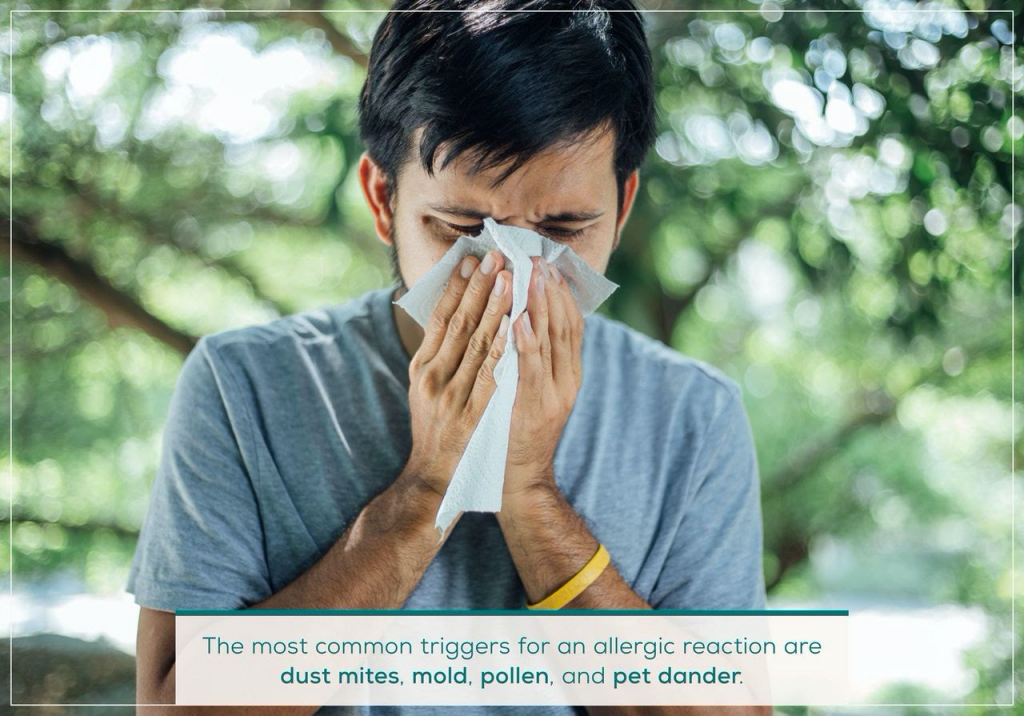
With allergy season in full swing, you may have suffered those annoying symptoms like itchy eyes, running nose and constant sneezing. But did you know that allergies can also make you feel tired? In fact, allergy fatigue is so common that there’s even a scientific name for tiredness due to allergies—“brain fog”—which makes it difficult to focus on tasks or function at your best each day.
This is because exposure to allergens triggers an immune response that is meant to protect you from unknown allergens such as pollen and dust mites. This produces a chemical called histamine which is known to cause symptoms such as itchiness, swelling and fatigue. Not to mention all the other symptoms like coughing and sneezing that may make it difficult to get comfortable and fall asleep or stay asleep each night.
To help prevent allergy symptoms so you can function normally during the day and sleep well at night, start by finding the source of your symptoms. You can do this by taking an allergy test or by keeping an allergy log to track what you have been exposed to and what symptoms you may have. Once you’ve identified the culprit, avoid those allergens or at least try to limit your exposure to them if possible.
Allergies can impact your quality of life, so learning how to manage your allergy fatigue is important. If you’re suffering from allergy fatigue, check out the infographic below, sharing tips for staying alert during the day, and ways to reduce your symptoms at night!

